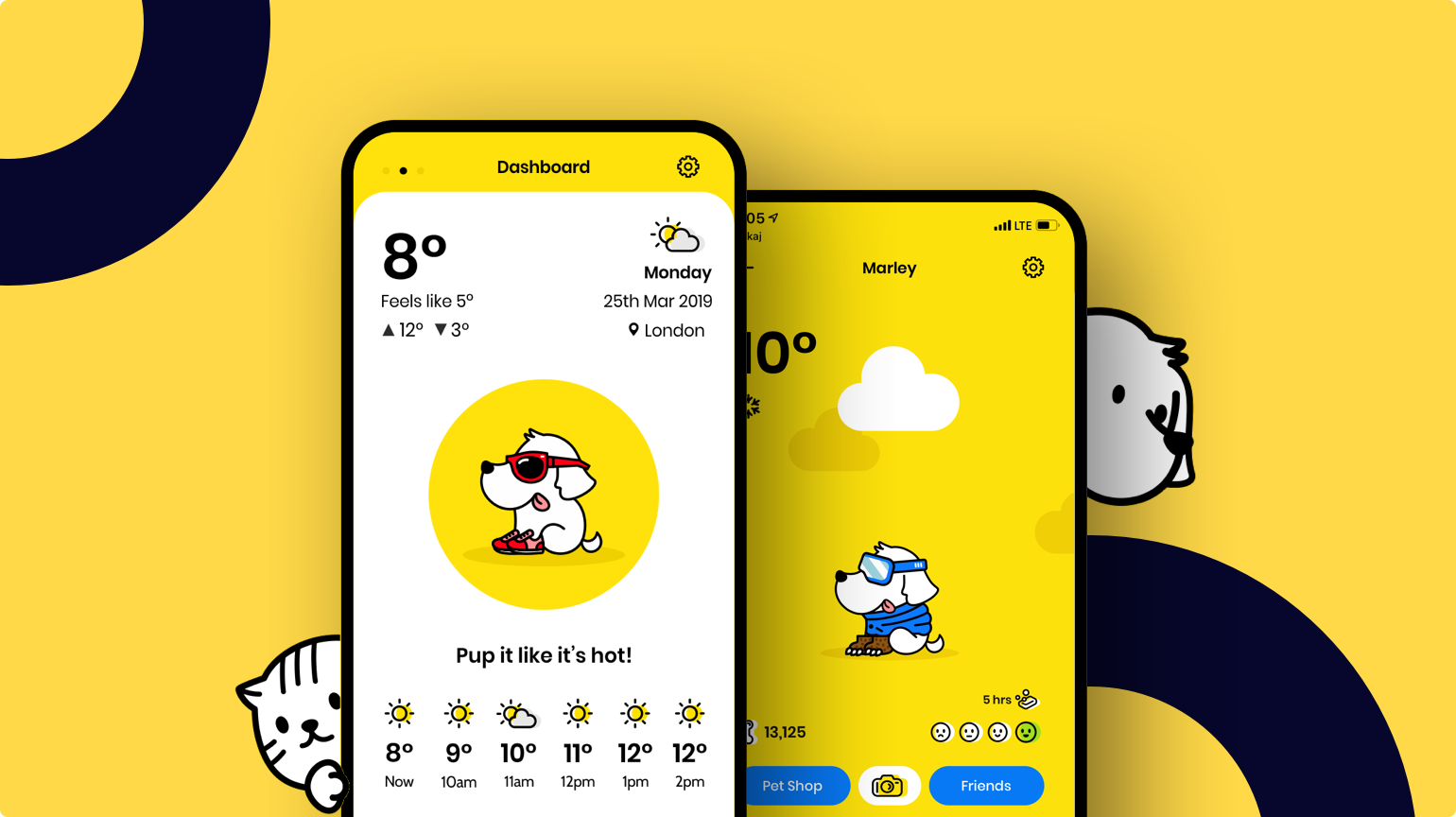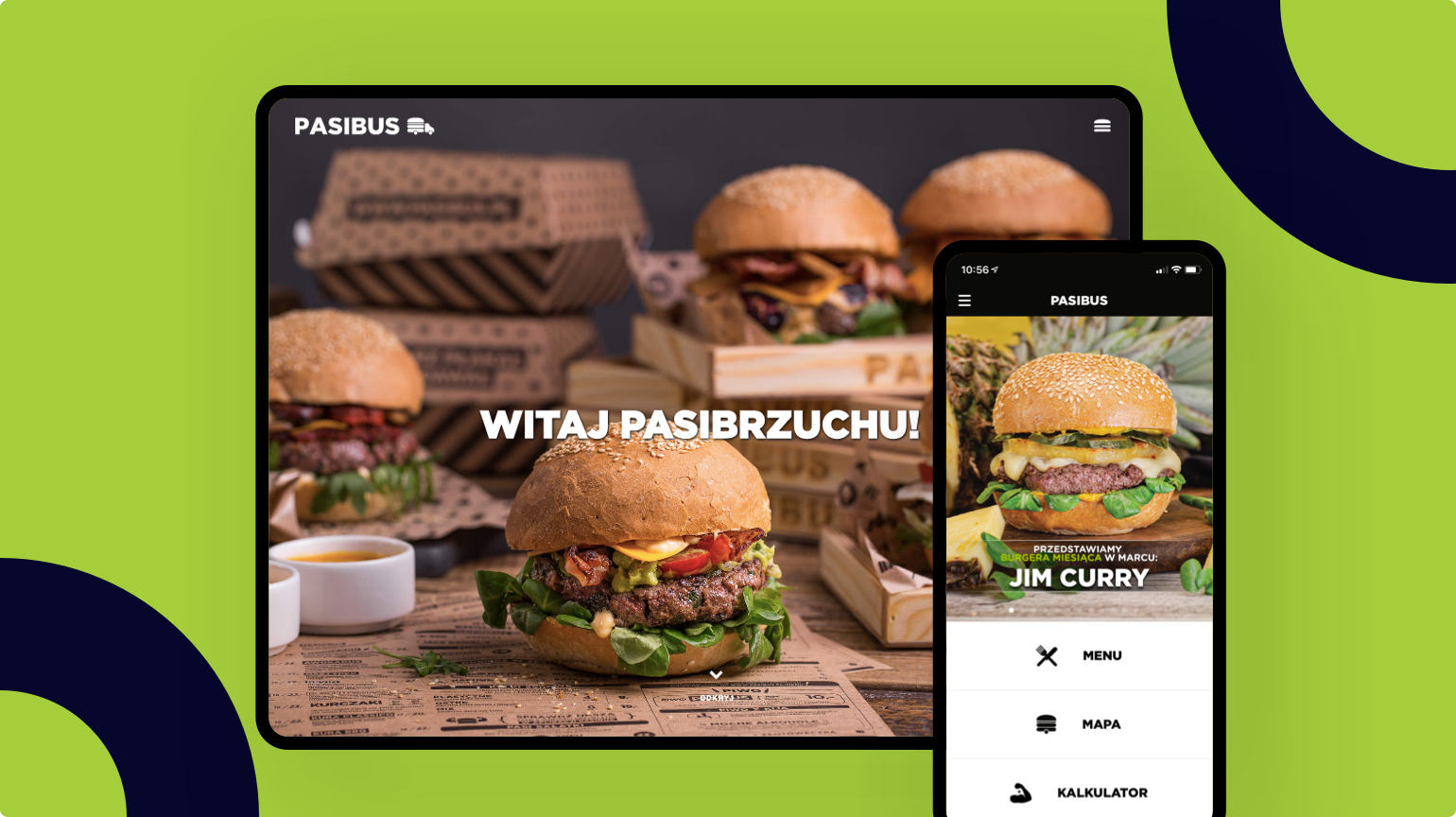Why choose PWA
Limitations of native apps
Consider the limitations of traditional apps – they usually require building a separate version for each platform and they are not search-engine-friendly. Research shows that consumers often abandon using an app if there’s a similar value they can get in a more convenient way - through their internet browser. PWAs address these limitations and offer a solution - an app-like experience that is fast and flexible.
Replace your mobile site with a Progressive Web App

For adaptability
PWAs are compatible with all major platforms and devices, and thanks to cached data they are also perfectly capable to work regardless of the quality of the Internet connection.

For better performance
Speed is one of the main advantages of Progressive Web Apps. Loading is simply much faster than on a regular website, which has a strong impact on user satisfaction.

For accessiblity
Progressive Web Apps run in the internet browser, which makes them extremely user-friendly. Your users will certainly appreciate how flexible and effortless the experience is.

Speed up your business growth with a PWA
Learn more about the opportunities of a Progressive Web App implementation
What is a Progressive Web Application
Put simply, a Progressive Web App is a website that looks and works like an application. It gives the users an immersive, app-like experience, mirroring the appearance and behavior of a native application. PWAs bridge the gap between websites and native apps, taking the best from both and combining it into an innovative and user-friendly solution.
PWAs work similarly to a native mobile or desktop app, but they’re faster, easier to use, and far more accessible. Thanks to a single codebase, your PWA can be used on any device and you can significantly reduce the efforts and costs of development, as the developers need to build just one app instead of separate ones for each platform.
Progressive Web Apps have no address bar or any other visible browser features. They appear to the users as a native app, providing them with app-style navigation and interactions, as well as all typical mobile features, such as push notifications, the possibility to pin the app to the homescreen, geolocation, and more. PWAs have also extensive offline features and can perform effectively regardless of the internet connection.
One of the most popular examples of a successful PWA is the lifestyle app Twitter. Thanks to the implementation, there’s no “firewall” between the users and the content – they can access everything directly through the browser, without the necessity to download and install the native app. What matters most is the fact that Twitter has observed a huge increase in traffic after switching to PWA. They have become much more accessible for users with a weak internet connection or those who lack memory space on their devices.
What does it mean for your business? It turns out that PWA can help you reach a wider audience - those who weren’t eager to download your native app may be the ones who will happily use your Progressive Web App!
The advantages of building a PWA
PWA is a great choice if your business aims at innovation. In order to live up to today’s users’ high expectations (or even exceed them), you need to invest in a flexible and reliable technology that will provide them with a top-class experience, prompt them to engage and take action. That’s what PWA is all about!
Consider the limitations of traditional apps – they usually require building a separate version for each platform and they are not search-engine-friendly. Research shows that consumers often abandon using an app if there’s a similar value they can get in a more convenient way - through their internet browser. PWAs address these limitations and offer a solution.
What’s important, the overall cost of PWA development is lower than the cost of development of a native mobile app. Due to a single codebase on which PWAs are developed, your business can benefit from a faster and more cost-efficient app development and maintenance, as well as quick and easy updates or bug fixes.
Progressive Web App development combines the advantages of responsive websites and native mobile applications to deliver a top-notch experience. With a PWA, you can satisfy a larger audience, as both mobile and web users will take advantage of the same features and excellent user experience. PWA approach fosters user retention and engagement, providing a native-like look and feel, and eliminating the necessity to download the app from the app store. All the users need to do is add a shortcut to your PWA on their screen - and they can access it anytime they need.
PWA means optimization. Progressive Web Applications use an absolute minimum of downloaded data - it results in faster loading and reduced customer churn. No more fear that the users will drop out before your app is fully loaded, a PWA will be ready to use in a blink of an eye! This can be lifesaving for e-commerce stores or education apps. Updating a PWA is also very easy. As the publisher of the application, you don’t have to verify it each time with the app store, and your users don’t have to download each new version. A PWA is technically closer to a website, so you update it just like you update a website – and the changes are visible immediately.
Moreover, Progressive Web Apps are not dependant on the quality of the Internet connection. Using a mechanism called Service Workers, the application uses the device’s cache to store data and make it accessible offline. Even if you have a stable Internet connection, Service Workers make the app work faster and enable a variety of useful features, such as push notifications or background synchronization.
Summing up - Progressive Web Apps are:
-
- fast, secure and reliable,
- cost-efficient in terms of development and maintenance,
- performing perfectly on all modern browsers and all major platforms,
- optimized for search engines,
- capable of working offline,
- easily accessible from the device’s home screen.
When you should choose PWA
You might still ask yourself “Who is using Progressive Web Apps? Isn’t it a niche thing?”. Absolutely not! Have you heard of Aliexpress, Uber or Pinterest? How about Starbucks or... Google Maps? We thought so. All of them – and many more successful platforms - are available as a PWA. They represent different industries, but what they all have in common is the enormous increase in traffic and user engagement after implementing a PWA. Put simply, they gained more users, and thus higher revenue by choosing this way!
Research shows that even though lots of companies invest in building dedicated mobile apps, consumers spend most of their time using just the top three apps on their devices. Many people don’t install new apps for weeks or months, and even if they do – they often put off updating them. Users will be much more likely to use a lightweight and fast PWA instead of sacrificing another hundred of megabytes on their device for a native app. People also spend a considerable amount of time out of home, so they would greatly appreciate if your app wouldn’t deprive them of their limited mobile internet connection plan.
Does it mean that a Progressive Web App is the Holy Grail of all apps and can be used in any project? Not quite. It is indeed flexible and versatile, but it has also a few limitations related to some advanced mobile features. For example, you shouldn’t choose a PWA for your project if you want to use an NFC or Bluetooth module in your app, or if you’re building an IoT solution for the Automotive industry. In case of any questions on the advantages and limitations of Progressive Web Apps, don’t hesitate to get in touch with a trusted software development partner. At Angry Nerds, we’ll be happy to learn more about your project and help you choose the best technology to make sure it succeeds.
What kind of applications should be PWAs
Progressive Web Application, with its flexibility and accessibility, can be a good solution for many companies, but there are certain industries for which it will allow to accomplish the best results.
First and foremost – e-commerce. Choosing a PWA instead of a mobile version of your website will have a considerable impact on the performance and usability of your online shop. And the easier and faster it is to use the shop on mobile devices – the more popular it will be among users, and more of them will become your customers! Implementing a PWA can directly lead to an increase in conversion rate, which simply means more sales and more profit. An investment in PWA will turn into a multiplied revenue faster than you think.
These advantages don’t apply only to regular online shops, but also to platforms offering accommodation booking, food delivery, or ticket ordering. These are usually applications you don’t use on a daily basis – and your users either. That’s why they won’t be keen on downloading an app just to complete one transaction every few weeks or months. By introducing a PWA approach, you can make it easier for them to use your service when they need it, without the necessity to download an updated app, or wait for the content to load.
The media industry would also greatly benefit from choosing PWA. It’s vital for news portals and websites that aim to attract a wide audience to be as accessible as possible. By turning your mobile website into a PWA, you can improve the speed of content loading, reduce bounce rate, and increase user retention and engagement.
Because of the capability of working with low-quality internet connection (or even no connection at all), Progressive Web Apps are a recommended solution if you’re planning to build an app for developing countries. In the areas where 4G (or even 5G now), easily accessible WiFi or a brand new iPhone are not a standard, you will be able to provide an exceptional user experience, as a PWA will work perfectly both on older devices and with an unstable internet connection.
If you’re still wondering if the PWA technology will be a good fit for your project, consult your idea with us. We can provide you with a dedicated estimation and point out the best opportunities to fulfill your vision.
Projects Completed
Talents on Board
Countries We Work With
Years in Business

Cats and Dogs: The Weather App
A weather app with a twist! Based on the designs provided by the client, we developed a mobile app that is both useful and entertaining.

Pasibus: Tasty Website and Mobile App
We built a comprehensive digital solution for a popular restaurant chain - and in our opinion, the best burger-makers in Poland!
Got questions?
Do we work with NDAs?
Yes, we work with NDAs. We maintain professionalism and uphold the confidentiality of our collaboration. If you need to safeguard the information you provide us for the purpose of creating a product, we are here to help. Additionally, our software development team ensures a secure and efficient process.
Where is our team located?
The majority of our development team is centered in Wrocław, while a few team members work remotely from various other cities. Poland is known for its exceptional IT talent pool, and Wrocław, as one of its prominent urban centers, stands out as a prime destination for companies looking for software development partners. Should you be interested in meeting our team, please visit our About page. You're also welcome to send us a message to gain insights into specific roles and access detailed profiles.
Do we transfer copyrights to the projects we develop for you?
Certainly, the code we generate essentially becomes your property. We are ready to formalize this through a contract that secures the transfer of intellectual property to you.
Can we take over a project developed by another company?
Absolutely! We're more than willing to take on such projects. However, our initial step would involve analyzing the project in order to provide you with recommendations on how to proceed. We are open to embracing such challenges, especially when it comes to implementing custom solutions.
 More services
More services







 Angry Nerds (Poland)
Angry Nerds (Poland) Angry Nerds (USA)
Angry Nerds (USA) Angry Nerds (Canada)
Angry Nerds (Canada)



